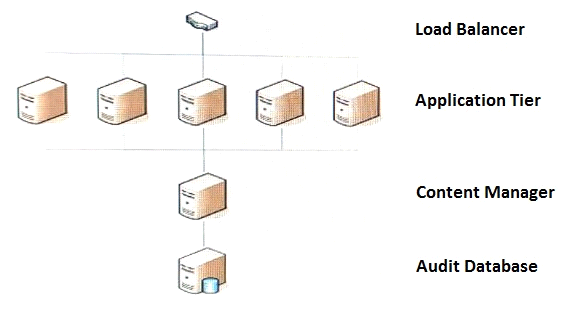At ValidExamDumps, we consistently monitor updates to the IBM C2090-623 exam questions by IBM. Whenever our team identifies changes in the exam questions,exam objectives, exam focus areas or in exam requirements, We immediately update our exam questions for both PDF and online practice exams. This commitment ensures our customers always have access to the most current and accurate questions. By preparing with these actual questions, our customers can successfully pass the IBM Cognos Analytics Administrator V11 exam on their first attempt without needing additional materials or study guides.
Other certification materials providers often include outdated or removed questions by IBM in their IBM C2090-623 exam. These outdated questions lead to customers failing their IBM Cognos Analytics Administrator V11 exam. In contrast, we ensure our questions bank includes only precise and up-to-date questions, guaranteeing their presence in your actual exam. Our main priority is your success in the IBM C2090-623 exam, not profiting from selling obsolete exam questions in PDF or Online Practice Test.
A user needs to create a data module that uses a datasource named MyDatabase.
What actions must be taken to enable the user to access this datasource?
You can combine multiple sources into one data module. After you add a source, click Add sources (Add a data source.) in Selected sources to add another source.
An administrator would like to log the activity for a single user.
Which action is required?
You can use logs to diagnose a problem that is occurring for one or more specific users.
You enable and disable logging for specific users by using the Remote Process service for Java Management Extensions (JMX), a technology that supplies tools to manage and monitor applications and service-oriented networks. You connect to the JMX Remote Process service using the jconsole executable that is provided with the Java JDK.
To monitor performance, an administrator has set thresholds on a system metric and notices that over time, the metric score has changed from green, to yellow, to red, and then back to yellow.
Which system metric is the administrator monitoring?
Figure: A detailed view showing the status of individual system metrics for a service

The following distributed environment has been configured:

The administrator wants to limit writes to the audit database connection from the Content Manager server only.
What needs to be configured?
If a request should be subject to Advanced Routing, then the client which send the request is responsible for calling CM to evaluate Routing Rules and put the Server Group Information into the request passed to a Dispatcher.
An administrator is operating in a hybrid operating systems environment, trying to establish a datasource connection. The compatible portion succeeds, however, the JDBC portion failed with following error: XQE-JDB-0004 A problem occurred finding the driver class
''com.microsoft.sqlserver.jdbc.SQLServerDriver''.
What is the possible cause for this error?
Question
When testing a JDBC connection to Microsoft SQL Server 2005 / 2008 / 2012 you receive the error XQE-JDB-0004 A problem occurred finding the driver class 'com.microsoft.sqlserver.jdbc.SQLServerDriver'.
Cause
The JDBC connector is missing or not properly installed for Cognos Answer
You may need to download the .JAR files from Microsoft download center site:
http://www.microsoft.com/en-us/download/details.aspx?displaylang=en&id=11774
or search for 'Microsoft JDBC Driver for SQL Server' via your favorite search engine.
Follow the Microsoft instructions to download and install.
References: http://www-01.ibm.com/support/docview.wss?uid=swg21623909